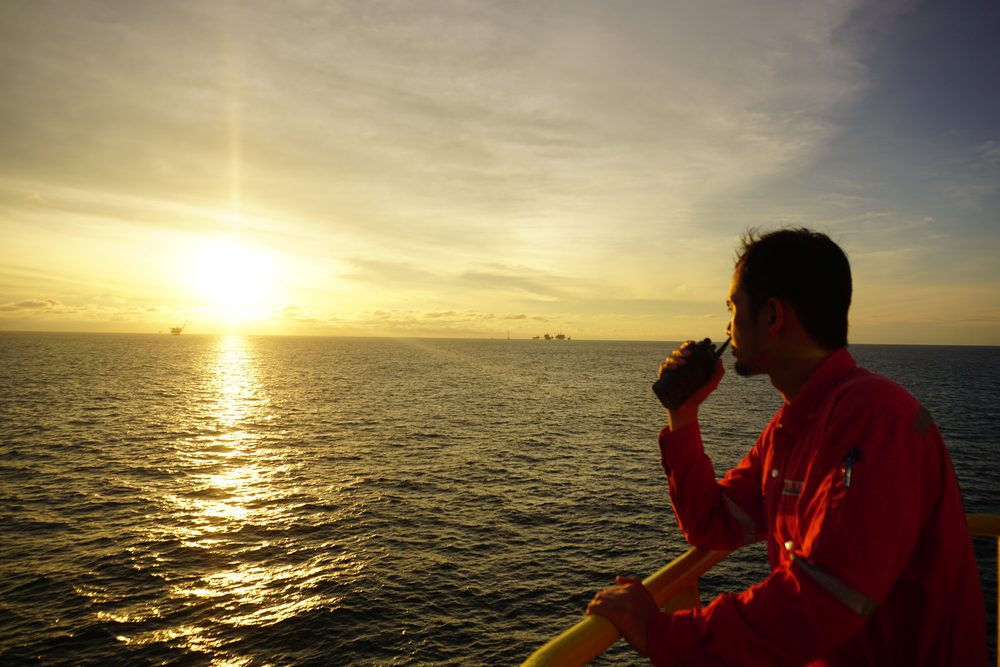Photo: deela dee / Shutterstock
In 1988 the IMO made “Seaspeak” the international language of the sea. English is the principle language base of Seaspeak because it was the most common language spoken at sea in 1988. English is also the international language in civil aviation. There are numerous factors that led to English as a common language for communication at sea. Some not nearly as relevant today as they were 40 years ago, some more so. But I ask the question not in a legal, historical or technical light but practically in the Master Pilot relationship. Particularly when the native language of master and pilot are very different.
Language barriers have long plagued safety at sea. Accidents due to misunderstandings or miscommunications can become disasters when there is no common language among officers and crew or passengers. The devastating fire onboard the ferry “Scandinavian Star” in 1990, where 160 lost their lives in part because many of the crew did not speak English, Danish or Norwegian.
A similar challenge lays in wait for master and pilot speaking very different native languages. Masters and pilots worldwide are full of tales of just averting (or not) serious accidents due to a language barrier. In spite of the IMO and Solas 1 requirements and recommendations, language barriers are as great an issue today as ever. At times it feels as though it is practically impossible to overcome. Regulations aside, how can I as a pilot demand that the master speak fluent English when I can’t speak their language at all? Yet if the master cannot speak English as regulations require, practically how can I get their ship safely to the berth? Certain non English speakers trying to speak English are required to replicate sounds, pronunciations that are non existent in their native language. We English speakers expect them to form words with sounds that they have never uttered or heard in their lives. In addition English is now a minority language among international shipping officers and crews. It is a serious conundrum.
The reality is language barriers are increasing at sea not decreasing, particularly unsafe between master and pilot. Is English the true international language at sea then? What to do about the very serious challenges in safely berthing a vessel when the master and pilot are having a difficult time communicating or not at all? A common international language, English, has been the obvious international choice. But what do master and pilot do when it isn’t?
There is an older more powerful language of the sea. A universal language that often may transcend and mitigate debilitating barriers. That international language is Professionalism. In depth knowledge and expertise demonstrated and executed; Prudent Seamanship. On the part of the master, demonstrating and executing Prudent Seamanship from approaching the Pilot Station to officers and crews well trained and on deck interfacing at the highest levels of professionalism.
The local tug captain coming alongside that vessel to put a line up, knows immediately if the ship’s crew are seasoned professionals, without a word of contact between the ship and the tug. The tug master knows by the demonstrated execution from the ship’s crew, no words need be spoken. Likewise the pilot upon entering the ship’s bridge may through demonstration and execution (and yes hand signals!) show the master that Professionalism and Prudent Seamanship are the pilot’s priority and habit.
Admittedly Professionalism and Prudent Seamanship are likely not enough to overcome very serious language barriers. But as in many professions, one professional will always recognize another. The importance of nonverbal communication is too often glossed over or dismissed. Professionalism demonstrated through execution, actions taken, will go a long way to mitigate the very serious potential mishaps that otherwise occur when we cannot converse fluently.
Professionalism is the true international language of the Sea.

 Join The Club
Join The Club











